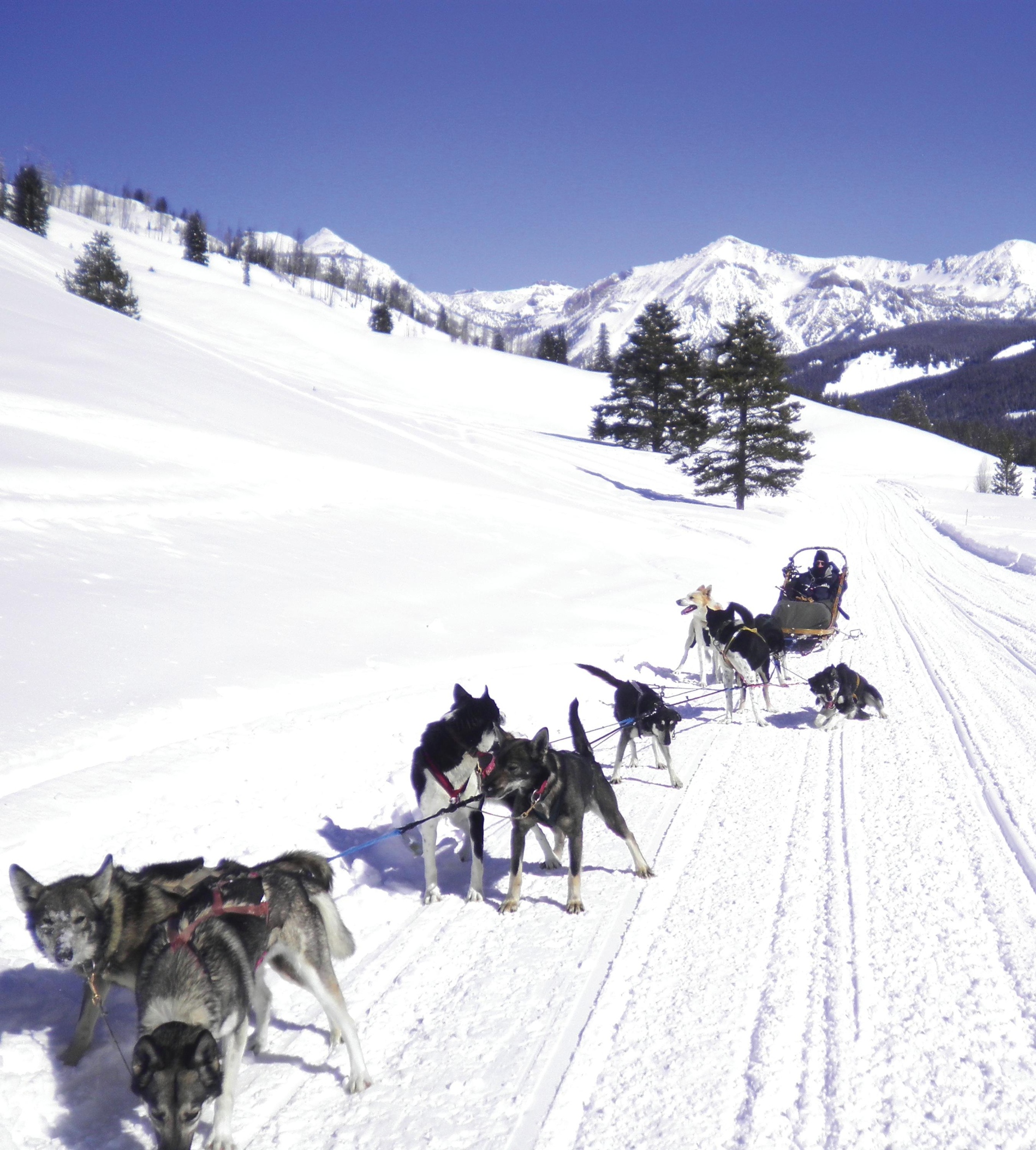Disabilities ‘can’t’ hinder sense of adventure
The word “can’t” is not part of the vocabulary at Common Ground Outdoor Adventures.
Common Ground volunteers will accompany participating adults with disabilities in the annual dogsled race in Jackson Hole, Wyo. this weekend, Feb. 21-23. The race is just one of the extreme adventures Common Ground facilitates throughout the year.
“People start asking about this trip in June,” said Bryce Patten, Common Ground program director and USU graduate. “We usually get about 15 participants that come dogsledding with us, then about seven staff and volunteers to help out.”
Founded in 1993 and established as a nonprofit in 1997, Common Ground provides “life-enhancing outdoor recreational opportunities for youth and adults with disabilities,” according to its website. Activities include snowshoeing and skiing in the winter and hiking and whitewater rafting in the summer.
Patten, who will have been with Common Ground for six years in April, said the 12-mile dogsled run is a “fantastic experience for everyone.”
“You know, there are not that many people that get to go dogsledding,” he said.
Based on ability, participants drive the sleds or sit in the basket, eye-level with the dogs pulling them, Patten said. The participants stay at the Teton Science School, and the dogsled race is made possible through Jackson Hole Iditarod Sled Dog Tours, Patten said.
“I don’t know how many years it’s been, maybe 15, something like that,” said Frank Teasley, owner of Jackson Hole Iditarod Sled Dog Tours. “They’ve basically pretty much become family with us. I mean, they know the dogs’ names and they’re returning clientele every year.”
Teasley began his tours in 1979 with seven dogs. He now has 187 dogs and said he receives daily tour requests throughout the week. He said he shares a good relationship with Common Ground.
“I guess the most important thing is that most of these people could not get out and experience the public lands the national forest at this time of year if we weren’t able to accommodate them,” Teasley said. “It’s worth it to us. It’s just a good cause.”
Common Ground intern Jordan Pease, a senior in social work at USU, said dogsled drivers, or mushers, teach participants the dog calls so the participants can be more engaged in the experience.
“In that sense, we don’t hold their hands,” Pease said. “We treat them the way we would treat anyone without a disability and expect them to pay attention and learn.”
Pease began interning at Common Ground in August 2013. His first Common Ground experience, however, dates back several years to when he was a participant, he said.
Pease has arthrogryposis multiplex congenita.
“It’s a hardening in the connective tissue between the joints,” Pease said of his disability. “You can’t bend your joints; your muscles have nowhere to go so they deplete.”
When Pease moved as a teenager with his family from Texas to Utah, he said his parents were determined to get him on a pair of skis.
“I was a stubborn teenager, and luckily I had parents who were just as stubborn as I was,” Pease said. “They really helped me find Common Ground. I was going to ski.”
He said his brothers started snowboarding once they moved to Utah.
“That first year they would go without me but they would film it for me so I could watch or I’d hang out in the lodge,” Pease said. “We were like, you know what, we’re going to make this possible for all of us to go together.”
When he was 16 years old, Pease skied with his father in a Common Ground activity. He said the experience left his father in tears. Now, as a husband and father, he said he skies every weekend he can.
“We’re really trying to let people know that adaptive sports exist, and not just the simple ones that you would hear about but like, downhill skiing for paraplegics and stuff like that,” Pease said. “It’s like no one’s really heard of a lot of this, and so we’re just really wanting people to know that this is out there. This is an option.”
Emotional experiences like Pease’s are not unusual at Common Ground. Patten said one father was having difficulty connecting with his son who had a disability. Patten said he invited them to come to a skiing activity.
“He was able to ski with his son,” Patten said. “He was like, ‘That was the best day of my life because I was able to spend that time with my son, and I never thought I’d be able to do that.’ We get that a lot.”
The Common Ground activities would be impossible were it not for volunteers. Patten said volunteer hours look good on resumes, but also make lasting impressions on the volunteers themselves.
“I love the effect that it has on people’s lives,” Patten said. “Not only just our participants, but others. You look at people with disabilities and you think, ‘They can’t, they can’t.’ That’s what they’re told their whole lives.”
Common Ground is about overcoming those obstacles caused by disabilities, he said.
“We spit in the face of ‘can’t,'” Pease said.
– noellejohansen@aggiemail.usu.edu
Twitter: @broelle

